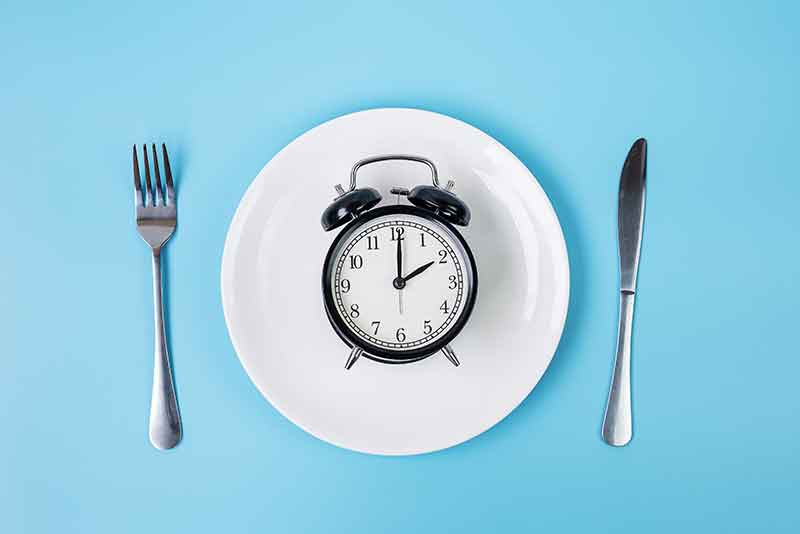Ever find yourself reaching for that extra slice of pizza or another handful of chips, even when you’re not hungry? Overeating is a common struggle many people face, often leading to discomfort and frustration. Whether it’s stress, boredom, or just the habit of snacking, breaking free from overeating can seem challenging. But don’t worry, there are simple and effective strategies to help you regain control over your eating habits and improve your overall health. Keep reading to discover our top five tips to stop overeating and start feeling your best!
How to stop overeating?
The majority of people tend to overeat when they have to wait too long for their meals. Some people eat as they are stressed and find comfort in food, while others get accustomed to snacking all day. Fortunately, some modifications in your diet and lifestyle along with the help of professionals can help you in dealing with overeating disorder. It will also help you improve your overall health and wellbeing.
What Are the Signs of Overeating?
It’s important to recognize the signs of overeating so you can take steps to stop it. Here are some common signs to watch out for:
- Eating When Not Hungry: You find yourself eating even when your stomach isn’t growling.
- Large Portions: You often fill your plate with more food than you need.
- Speed Eating: You eat your meals very quickly, not giving your body time to feel full.
- Feeling Guilty: After eating, you feel bad or ashamed about how much you ate.
- Snacking All Day: You snack throughout the day without feeling hungry.
- Overeating at Night: You often eat a lot of food late at night.
- Cravings: You frequently crave and eat junk food, like chips, cookies, or soda.
- Stress Eating: You eat to feel better when you’re stressed, sad, or bored.
Recognizing these signs can help you understand your eating habits and take steps to improve them. By being aware, you can start making changes to stop overeating and feel healthier.
Here are our top five tips to avoid overeating
1. Eat high fiber and protein-rich Food

Including fibrous and protein-rich foods in your diet will surely help in preventing overeating. These foods will make you feel full for a longer duration. Increasing your protein and fiber intake in your diet will reduce your cravings, appetite, and overall food intake. Our digestive tract processes fiber very slowly, thus making you full for a longer duration. Similarly, including protein-rich foods in your diet tends to suppress your hunger by lowering your hunger-stimulating hormone.
Some examples of healthy sources of protein and fiber-rich food are:
- Oats
- Sweet potato and Leafy green vegetables
- Greek yogurt
- Nuts and seeds
- Lentils, sprouts, pea, and beans
- Whole grains
- Fruits like oranges, pears, apples (with skin), bananas, etc
2. Eliminate stress

Stress can cause emotional eating and this can lead to overeating. When people are stressed they tend to overeat as raised hormone levels in the body promote hunger to replenish the energy lost. Also, people tend to seek comfort in food when they are stressed; hence they overeat, especially junk food. Chronic stress can lead to persistent hunger, binge eating, and obesity. So if you want to learn how to stop overeating, then try to eliminate stress by exercising regularly, practising yoga, and meditation. Also, practice mindfulness and start writing your accomplishments at the end of the day as it will make you feel better.
3. Check your sugar intake

Most of us are guilty of reaching out for that one more cookie or one more glass of soda. Food and beverages such as candy, white bread, soft drinks, sodas, and cookies are laden with sugar and have a high glycaemic index which spikes blood sugar, then falls rapidly. This rapid fluctuation in blood sugar promotes hunger and leads to overeating. Eating meals with sweetened beverages leads to overeating. This is no longer a secret that avoid sugary foods if you want to stop overeating. Instead of reaching out for food with high GI such as candy, white bread, and doughnuts, choose brown rice, oats, and whole wheat bread. Also, replace your sweetened drinks with water
4. Don’t skip meals

Most people think that skipping meals helps them in losing weight, which is not true. Skipping meals can lead to cravings and significantly increase the risk of overeating, which ultimately leads to weight gain. Instead, try to make a regular meal schedule and stick with it. Instead of eating one or two giant meals, eat three structured nutritional meals at your scheduled time so that you don’t overeat out of hunger.
5. Drink enough water

Staying hydrated throughout the day is an effective way to avoid overeating. Drinking water before a meal significantly reduces your cravings and hunger as it will give you the feeling of fullness. Choosing water over high-calorie drinks such as sodas, juices, and soft drinks not only limits your calorie intake but also prevents you from any potential health risk.
Are you dealing with an overeating disorder?
In general, overeating can be described as eating more food in one sitting than your body can handle without having any discomfort. Although in the case of an overeating disorder it is more like a psychological problem. A person with an overeating disorder shares a very different relationship with food. They eat copious amounts of food even when they are not hungry and are unable to stop eating even when they are uncontrollably full. And after every episode of overeating, they are plagued with feelings of guilt, shame, and distress. They seek comfort in food, and then, when reality sets in, their overeating habits cause them a feeling of self-loathing and disappointment.
Watch out for these eating disorder symptoms:
- Feeling a lack of control while eating
- Consuming large amounts of food in a short period of time
- No use of purging behaviors
- Episodes of binge eating
- Eating even when you are not hungry
- Excessive midnight cravings
- A feeling of distress, or disgust after overeating
Bottom Line
Occasional overeating is fine as everyone tends to indulge in their favorite food. Although if this habit continues then it can turn your health upside down. Check the above symptoms if you feel you are dealing with an overeating disorder, you can follow the above-mentioned tips to deal with overeating while improving your overall wellbeing.

Priyanka Khurana Goyal is a prominent Indian figure renowned for her diverse accomplishments and contributions across various fields.. Read more



